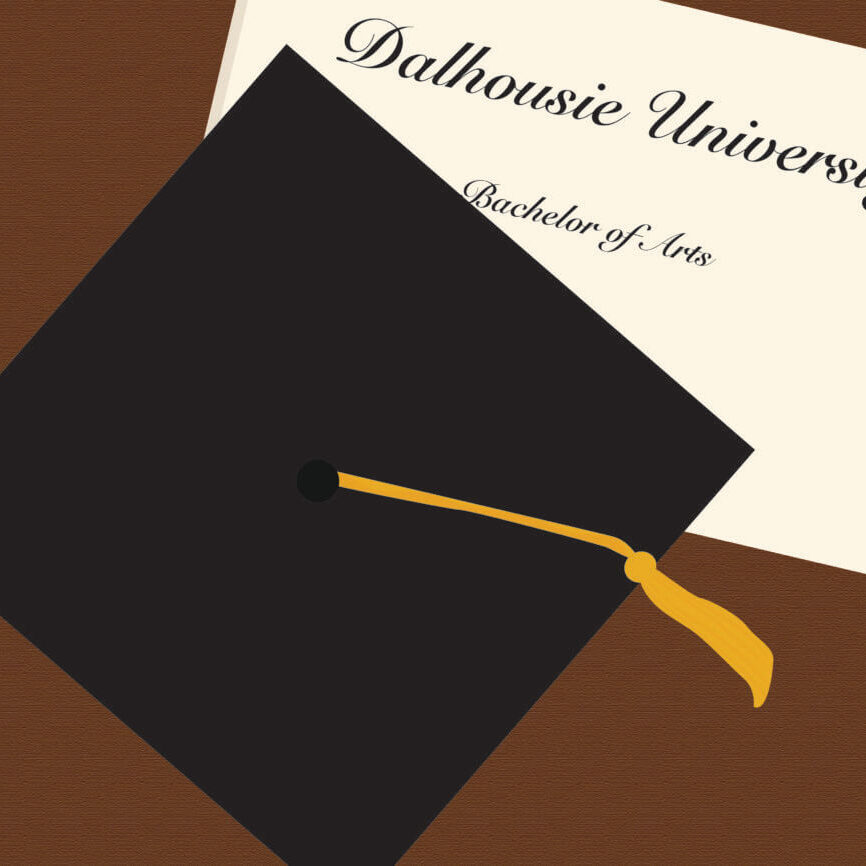
What are you going to do with that degree?
The value of an arts education
Many people don’t see the value in an arts degree. As someone on the brink of finishing one, and someone who once struggled to see the value in one, I can assure you, an arts degree is worth it.
As I work my way through the final year of my bachelor of arts degree, I’ve been reminiscing about the doubts and anxieties that defined the first couple of years of my studies. Constantly being asked, “what are you going to do with that degree?” eventually leads one to wonder: what am I going to do with this degree?
I spent those first two years questioning my decision to pursue a bachelor of arts and regularly considering a program transfer. Now, going into my fourth year, I’m in love with what I study, excited about my future and thankful for what my education has taught me.
Arts degrees in an ever-changing world
My arts education has taught me how to account for complexity, something I think is becoming more important in our increasingly complex world. In the arts, social sciences and humanities, there is oftentimes more than one right answer. You can be right and wrong at the same time.
An arts education helps evade binary thinking, which limits our ability to understand the complexity of the world around us. Our lives are being transformed by massive technological change, and we face other challenges of great complexity, including climate change and persistent racial and socioeconomic inequality.
Being able to think holistically in a non-binary way about the world around us and the issues we face, is, in my opinion, an essential skill in this context.
Additionally, I’ve learned so much about the world and myself. Throughout my arts degree, I’ve learned about and applied theories that attempt to explain human behaviour, cultural and environmental processes and macro phenomena.
I’ve learned about how our world functions, and why it functions that way. In doing so, I’ve also learned why I am who I am and what aspects of our world shape my being.
Thanks to my arts education, I feel more secure in my understanding of our world and of myself. In short, my arts education has made me a better person — I now consider cultural, environmental and macro processes that shape our lives and explain our situations.
Arts courses at Dal and the University of King’s College have helped me in many ways. For instance, the contemporary studies course Feminisms: The First Three Waves taught me about the great variation in feminist writing, and how to think holistically about social movements.
Some courses have taught me about the role our identities play in shaping our experiences, such as the political science course Sexuality, Racism and Western Political Thought, and the sociology course Gender and Health.
Other courses have helped me understand how the structures around us shape our experiences, such as sociology courses like The Sociology of Law, and Explaining Social Inequality. Additionally, research methods courses have taught me practical skills for a professional work environment.
Thinking ahead
While I am thankful for all I’ve learned during my arts education, there is still the looming issue of employment, or rather, the fear of unemployment. What am I going to do with an arts degree? I’ve come to find this persistent, seemingly ever-present question funny, as with an arts degree, you are virtually closing no doors.
People ask this question as if you have no options. They’re interested in hearing how you plan on making a career out of this useless degree when in reality, you have many options.
Unlike professional degrees that train and streamline students for very specific careers, an arts degree teaches valuable skills that are applicable to all sectors. For example, I’m considering careers in academia, government, the non-profit sector, research, communications and journalism.
Work in all these fields benefits from a holistic understanding of the world around us, as well as important practical skills developed in an arts education, including writing, research skills, critical analysis and so much more.
Seeing as I have no one career definitively ahead of me, I’m excited for my future and ready to explore. I’ve come to worry less about the issue of employment because of something I’ve learned – I don’t want to work for anyone who wouldn’t hire someone with an arts degree.
I’ve now worked a few student summer jobs. These places saw my value as an arts student and allowed me to apply some of the skills and values I’ve gained from my education.
I spent last summer working at Easter Seals Nova Scotia, a non-profit organization supporting Nova Scotians who live with disabilities. It quickly became clear that this organization values arts-based knowledge, skills and attributes such as effective communication, critical understandings of our society, empathy, and deep commitment to equality and social justice.
Keep at it, arts students
So, to first-year arts students I say, don’t let the dreaded question, “What are you going to do with that degree?” get to you. You’re embarking on a journey of enlightenment and discovery. With 35 programs and hundreds of courses in the Faculty of Arts and Social Sciences at Dalhousie, you have an abundance of opportunities to find what speaks to you, and how you want to make a difference.
My arts education has shaped who I am today, and I am excited to carry the values I’ve learned forward with me in whatever I do next. I promise, there are people out there who will see you and your education as invaluable.






